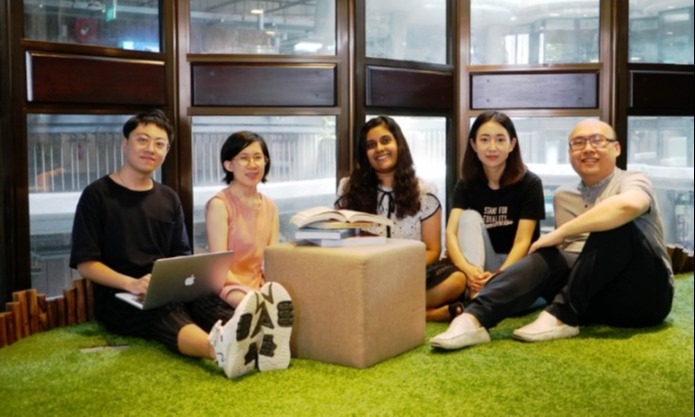Investigating the Invisible, Unveiling the Uncomfortable
Sociologists examine the taken for granted “facts” of society, often exposing unsavoury and under-investigated parts of contemporary social life. NTU Sociology provides research training through full-time and part-time M.A. and Ph.D. by research, designed to give you the academic training needed to pursue your interests and produce rigorous social science. Our graduates have gone on to academic teaching and research jobs in institutions such as the University of Glasgow (UK), Georgia Gwinnett College (USA) and the NTU Lee Kong Chian School of Medicine.
Our faculty members are highly active in research and specialise in a wide range of topics including (but not limited to): Ageing and Gerontology, the Sociology of Health and Mental Health, Cultural Sociology, Demography, Deviance and Subcultures, Economic Sociology, Environmental Sociology, Migration and Globalisation, Popular Culture, Race and Ethnicity, Religion, Science and Technology, Social Inequality, Social Psychology, Sociology of Family, Tourism, and Urban Sociology. Our faculty’s research projects have included inequality and poverty in Singapore (A/P Teo You Yenn), nuclear leaks and governance in Fukushima (A/P Sulfikar Amir) and hip-hop culture amongst Muslim American youth (A/P Kamaludeen Mohamed Nasir). Our professors are regularly featured in the media, in a wide range of outlets such as in The Straits Times, South China Morning Post (SCMP), BBC, CNN, The New York Times, Al Jazeera and Channel News Asia (CNA).
Through the programme, you will form a strong theoretical foundation in Sociology, and build skills across various approaches to research, including quantitative and qualitative methods. You will also be given opportunities to teach – a sure way to ensure you are well acquainted with Sociology and gain valuable interaction with undergraduate students. There are also opportunities to connect with NTU’s partner universities, such as NUS and SMU, and funding opportunities for independent overseas research and conference attendance. Previous graduate students of the department have undertaken research on a wide range of topics, including online gaming, Star Wars, female labour migration, ethnic minority Koreans in China, and the politics of choral groups in Singapore.
We encourage our graduate students to collaborate in research projects with faculty members. Students have published co-authored articles in journals such as Symbolic Interaction, Asian Anthropology and the International Journal of environmental research and public health. NTU offers a range of funding opportunities and schemes for students to pursue their postgraduate work, such as the NTU Research Scholarship (RSS) and the Nanyang President's Graduate Scholarship (NPGS) for top candidates.
The M.A. and Ph.D. programmes in Sociology are MOE subsidised. Please visit our website for more details.
Admission Requirements
- An Bachelor's degree preferably in Social Sciences, especially Sociology, from a highly ranked university, with Honours (Distinction) or Second upper Honours and the ability to pursue research in the candidate's proposed field of advanced study.
- Students with little or no prior sociological training may be granted admission conditional on their satisfactory completion of additional reading courses. Students in this category will therefore be required to submit additional documentation concerning their undergraduate training. This should include official syllabi from their previous training, bearing the signature or stamp of the relevant authority or institution. Letters of reference from previous instructors should also be supplied, detailing the character and scope of their undergraduate training in sociology or other relevant social-science fields. Students with no social-science background are unlikely to be admitted.
- A good language proficiency score: IELTS score at least 7.0 (overall); TOEFL score at least 105 – Internet Based Test Score (IBT). IELTS is preferred. The IELTS/TOEFL score must have been attained within 2 years prior to application.
- GRE is not required.
- Applicants who fulfilled either of the following criteria are exempted from the IELTS or TOEFL submission:
- Native language is English.
- Bachelor's degree (must be at least 3 years of study) where English is the medium of instruction. A letter from the respective universities is required indicating the duration of studies, name of programme and medium of instruction.
- Applicants whose Bachelor's degree is from NTU, NUS, SMU or SUSS need not submit the letter.
- Applicants are encouraged to contact faculty members working on related research topics and discuss with them their proposal before submitting the application.
Application Period & Other Information
Please click here for the Admission Quick Guide.
Enquiries can be sent to ac-sss-ge@ntu.edu.sg.
Programme Structure & Duration
M.A. students must have their candidature confirmed by 12 months from the start of the programme. They should maintain a minimum Cumulative Grade Point Average of 3.00 (refer to award letter for exceptions). This involves demonstrating sufficient progress in their research and completion of coursework and other degree requirements. Thesis submission is due by the end of the second year and coincides with the scholarship expiry. Candidature expires at the end of 3 years.
Curriculum
For M.A. programme in Sociology, students must complete and pass the following:
Three core courses: HS7001 Classical Sociological Theory and Research; HS7002 Contemporary Sociological Theory and Research; and HS7003 Theory and Method in Social Research.
RI-ERIC Epigeum Research Integrity Course
HWG702 Teaching Assistants Programme (only for full-time MA students)
Seminar Attendance
Confirmation of Candidature Exercise
Thesis


